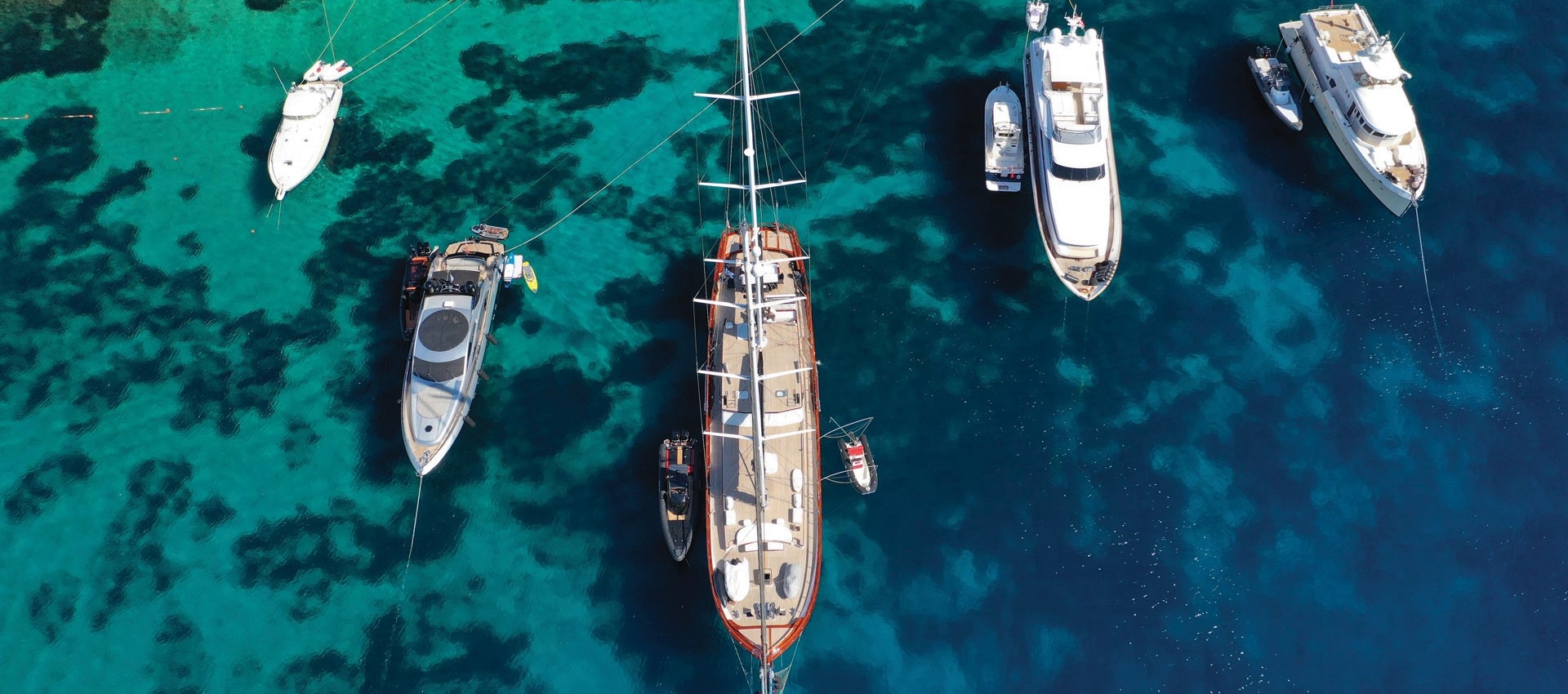Sailing / Yachting
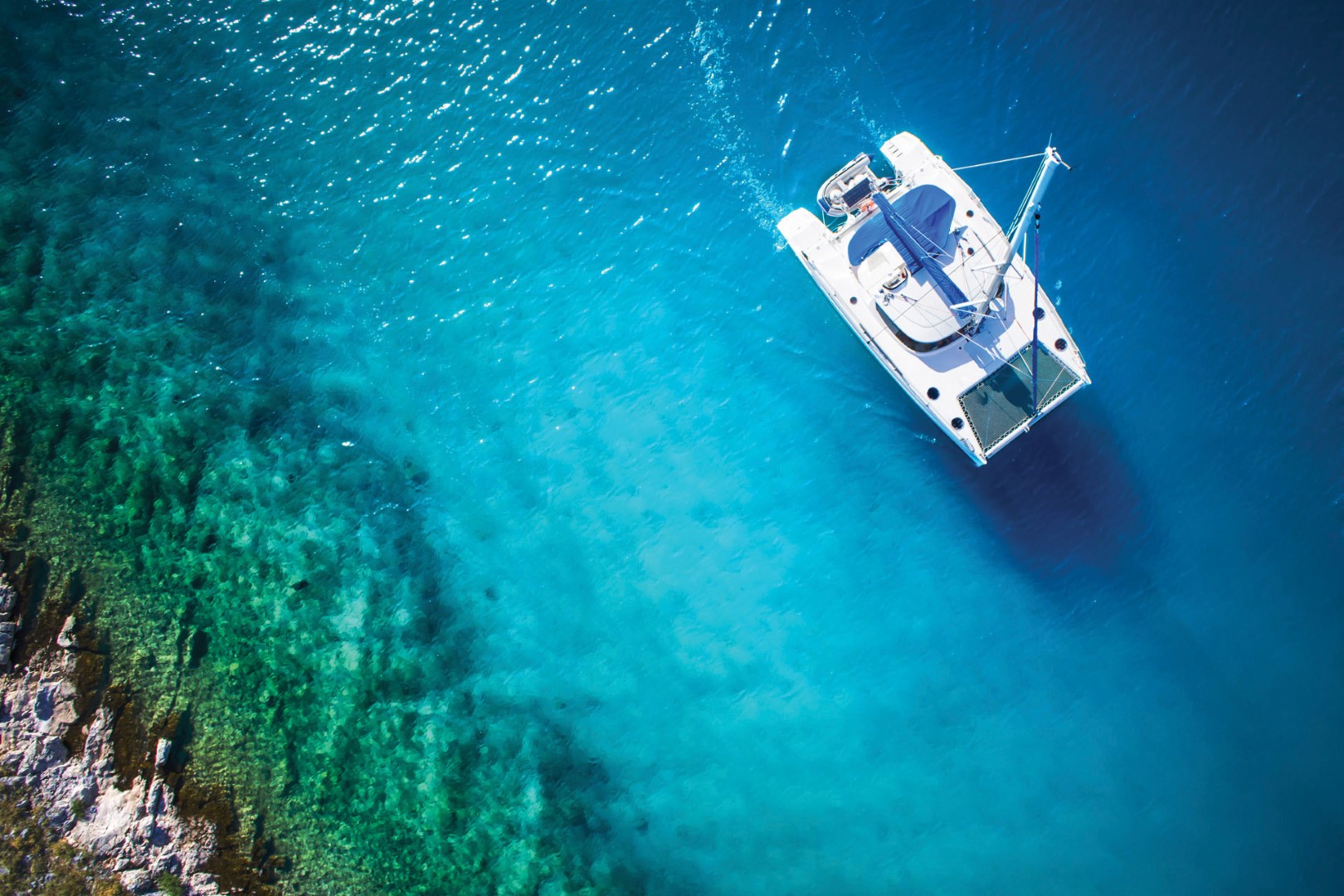

Best sailing period
The sailing season in Greece lasts from April to November, and is similar to other Mediterranean countries. The peak/high season lasts from the last week in June until the middle of September. During this time, you can expect crowded marinas and ports, and many day-tripper motorboats that occupy the majority of port moorings on islands, so be prepared for occasional anchoring. There are many sailing yachts, catamarans, motor boats and gullets with excellent price offers to charter, and you can be sure that the restaurants and shops are always open. Summer months can be very hot and dry, with a lot of sun and temperatures up to 35 °C around the coast and islands, but not in the Cyclades where the Meltemi winds are constantly blowing for weeks and up to 8 Beaufort in July and August. Ferries are then not allowed to sail, and some charter-companies do not allow boats to leave the harbor.
The best time to sail is in shoulder seasons, in June and from the second week in September. You can enjoy the aftermath of summer and reasonable prices. There are also regional differences in the season due to the size of Greece; for example, summer and shoulder seasons are longer in the south of the Aegean islands where swimming is also possible in December.
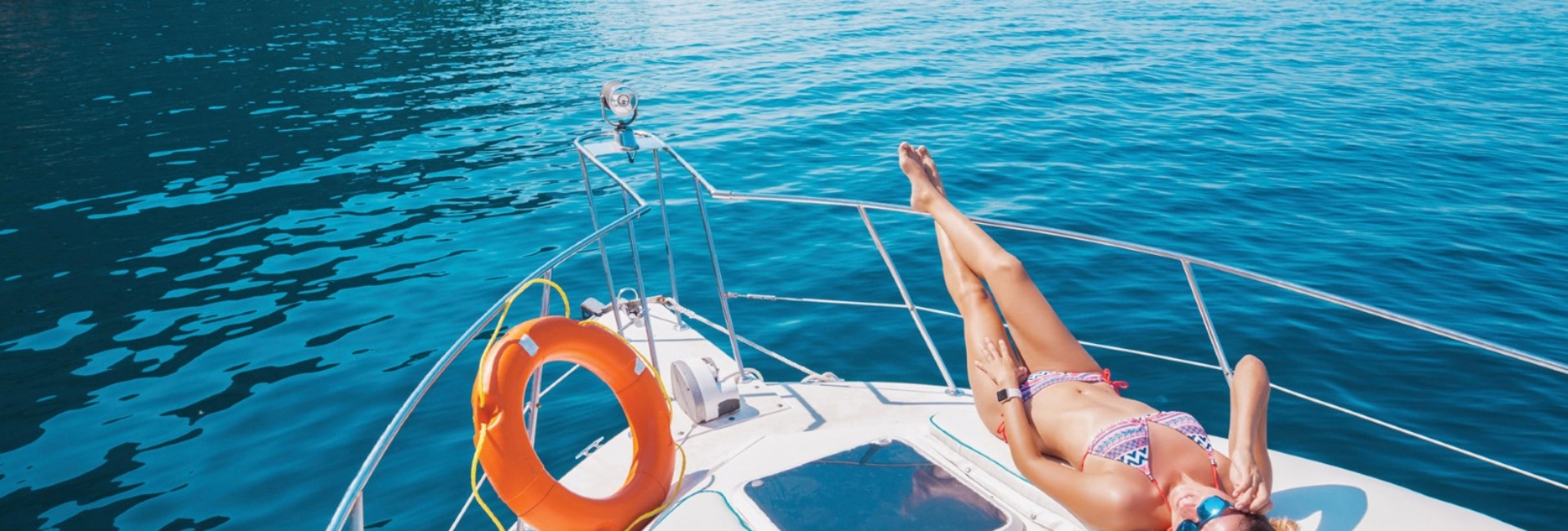
Charter possibilities
Decide what Greek islands you would like to visit and rent a desirable boat. Choose a bareboat yacht charter if you are an experienced sailor, or opt for a skippered yacht charter if you want to have more free time on board and feel secure with a professional skipper handling the boat.
Greece has very hot and sunny summers with raised breeze probability, and is less protected from the Azores High. There are more thunderstorms in the inland area and more often in June than in summer.
Should you expect a storm, it could be very difficult to find some shelter for protection due to the long distances between the islands, hence we recommend having a skipper on board. It is very important to prepare yourself and regularly check weather forecasts. The exception is the Ionian Sea where the distances are shorter, and the bays and harbors are close to each other. This beautiful area is ideal for sailors-beginners, so one can opt for a bareboat yacht charter. If you lack sailing experience, or you want a complete vacation with no worries about your boat, charter a skippered boat. Skipper will take full responsibility over the yacht, sailing maneuvers, and itinerary. Hire a domestic skipper because of their specific set of skills and for their knowledge of local islands, customs, ports, restaurants, bays, beaches and all other crucial information for successful sailing holiday. Step further would be renting a crewed yacht. The crew consists of a professional skipper, host/cook, or/and professional cook. On larger yachts there will also be a deckhand on board to help with all the ropes and mooring operations. The crew can take you on tours on the islands and give you a short overview of the history and cultural heritage. If you choose to hire a domestic cook, you will enjoy flawless Greek cuisine merged with the best Greek wines, some of which belong to the best wines in the world. Gullets are a frequent type of a crewed yacht charter on the Greek coast. A gullet is a charming wooden sailing yacht, and there is a large variety of gullets in the Mediterranean Sea. Most of them have a minimum of three or four crew members consisting of a captain, deckhand, host and cook.
Gullets are very wide, so you will feel very com fortable while spending time on the sea. Among offered gullets you can find the most luxurious ones with all needed luxury goods on board.
There are also possibilities for day tours, but we recommend to check those on-spot or online at websites specialized in day sailing trips.
There are various possibilities to book a cabin on a yacht or the whole yacht in Greece. If you do not want to be bothered with all of the organizational procedures, this is the best solution for you. You only need to pay for the trip and show up on the yacht. Once you arrive at marina your yacht will be waiting for you with a professional skipper on board and with all needed equipment. Organized sailing will mean that places in ports and marinas are waiting for you. The same can be applied to restaurants and some other offered activities, resulting in providing extra value for the customers.
Since organized party sailing/yachting events have become quite popular in Greece, you can opt for a charter specialized for partying.

What’s the cost?
Once you decide on the integral thing – a boat – be it newer or seasoned, you can start planning your expenses that vary depending on your desired way of sailing. Greece generally has relatively low prices in yacht charter industry. In all marinas and ports fees are determined by the length of the yacht. For example, for a ten-meter yacht, you will pay €5.50 to €10/night for a mooring in harbors. You can be sure that the friendly and hard-working marina staff will take care of your boat.
If you compare the prices with other countries, it is multiple times cheaper to sail in Greece. It is to say that the infrastructure of harbors and sanitary installations are in generally worse condition than in other countries, and there are less moorings and buoys to anchor/moor your boat. Due to crowded marinas, it is advised to have a good anchor gear with a lot of chain and a good second anchor. You can find a restaurant where you can eat and get a mooring space for your boat beside the restaurant for free. Almost each marina and harbor have their own grocery shop, but they are more expensive than shops on land. Stock up on groceries at the beginning of your sailing journey. If you have a skipper on board, you will be responsible for their wellbeing – a skipper should be provided with three meals a day. The same applies for a hostess. After you finish your sailing holiday in Greece, it is common to fill up the boat’s fuel tank with a fuel tank truck, which will be organized by the charter company.
This is a common process in Greece because there are not many fuel stations near harbors. The fuel prices are higher than in most other South European countries, and the difference between the main coast and the islands can also vary a lot. The fuel prices on the islands are really high, and it is also possible to get fuel diluted with water. If you suspect that the fuel is not brownish red or pale yellow, or that fuel is not yellowish green, please do not tank. A charter base should warn you about fuel quality if you are to sail long distances
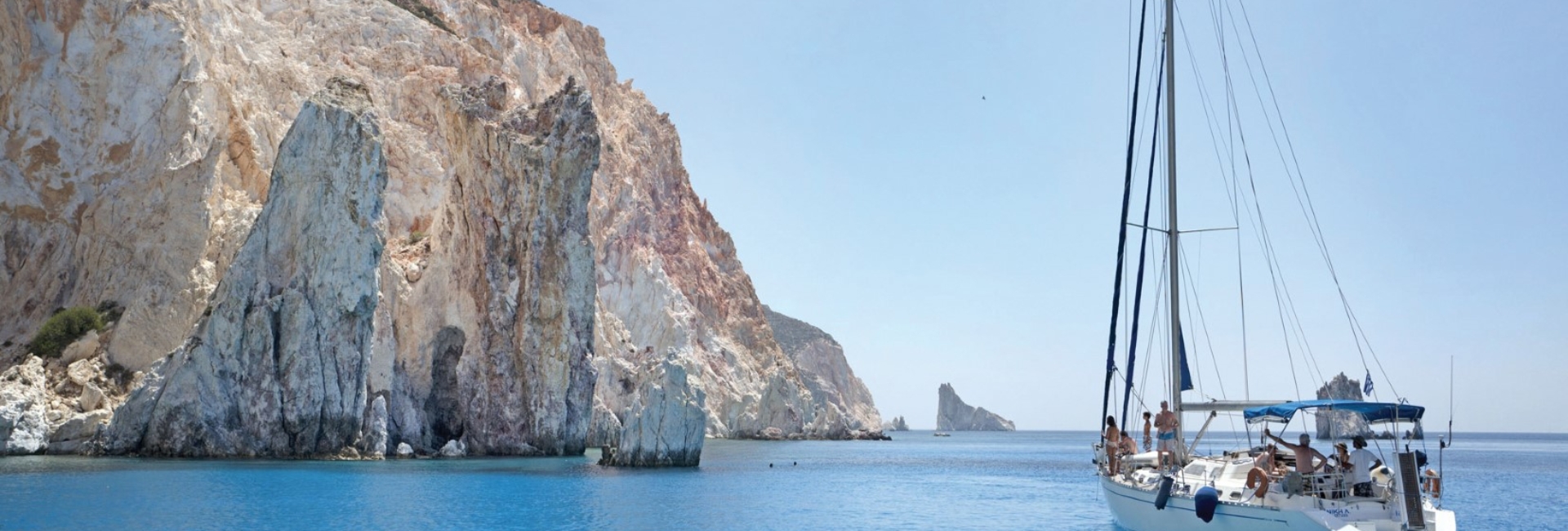
The climate
The climate in Greece is affected by the Mediterranean, and as mentioned less protected by the Azores High, but this guarantees long summers. The weather is characterized by damp, mild winters, while summers can be very hot and dry. After a long summer period, at the end of October, the weather begins to be more unstable because of the decreasing Azores High, and the mixture of the cold and hot air masses can cause thunderstorms. The more southern you sail, the more sun you will have. For example, the region of South Aegean counts more than 300 sunny days (more than 3,000 sunny hours) a year. This value counts among the highest in Europe. The temperatures can reach high levels really fast, but humidity stays around comfortable 50%, and the air is sometimes dry.
The tide differences are practically negligible, which causes relaxed embarkation from ports.

The Winds
Winds in Greece are known to be very changeable, especially in winter months, where high and low-pressure differences (fields) are dominating. In the months from mid-October to mid-June, the wind is changing direction and the strength quite often. During summer, a barometer is not a good indicator to predict the weather since it never goes over 10 hPa. There is also a rule of 3-4 days that means the wind will change its direction from north to south and back every 3-4 days.
The most relevant wind is the Meltemi which is dominating from the end of June till the beginning of September. The Meltemi blows up to 8 Beaufort and brings cold and dry air with humidity of 50-70 %, thus making summer temperatures very pleasant. The Meltemi declines in the morning and evening, and reaches its strength during sunny hours. After its decline, it could be possible that the coast gets weak south winds between 1-3 Beaufort. It is useful to set a second anchor then. Greece can be divided into five wind zones.
Sailing conditions are of medium difficulty. The winds get stronger during main summer months, July and August, but are considerably milder than main Aegean Sea. The formation of islands and the nearby Asia coastline offer natural protection to the sea area and when winds get stronger, there is always another island nearby to offer reliable coverage.
Wind directions in greek
N vorios
NE vorio anatolikos
E anatolikos
SE notio anatolikos
S notios
SW notio ditikos
W ditikos
NW vorio ditikos
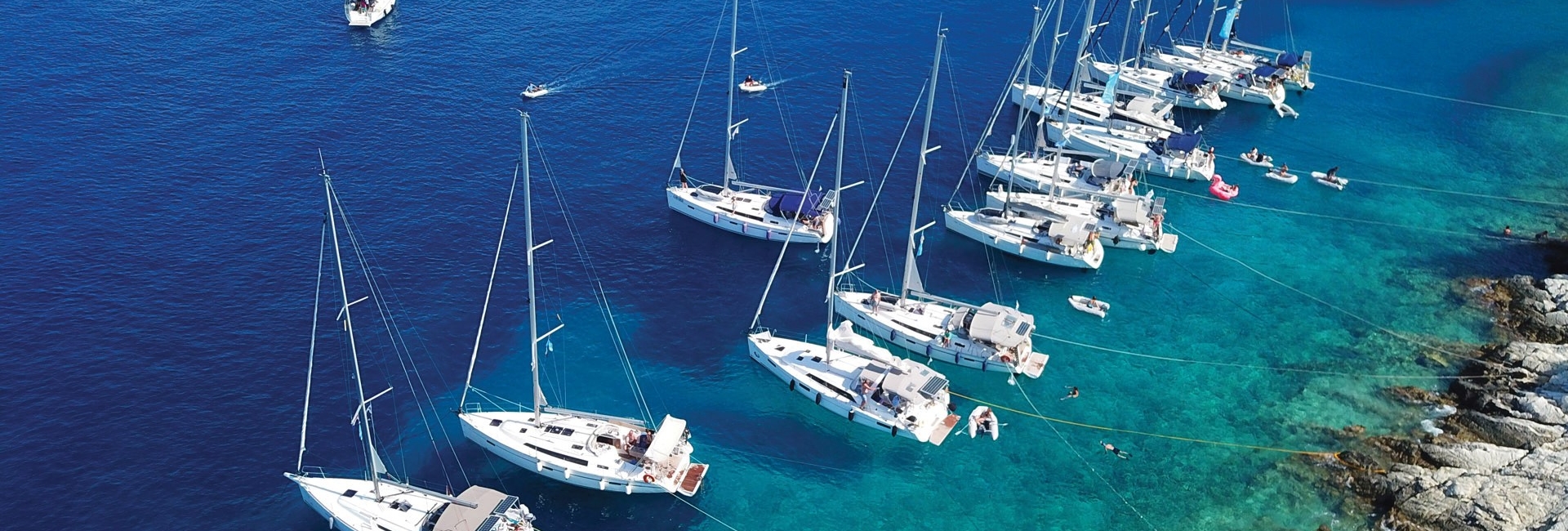
Licenses in Greece
According to Greek maritime laws, there have to be at least two persons on board with sail - ing licenses. That means that the co-skipper has to show the license at the charter company, too. In the case that the co-skipper does not hold a sailing license, but has sail - ing experience, there is a possibil - ity to sign a so-called “declaration of honor”, which has proven to be a frequent practice in Greece.
Greece accepts nearly every li - cense of the European countries, but it has to be at least equivalent to a RYA YachtMaster Coastal with a range of 20 nautical miles. After you book your yacht, you have to send your license(s) to a charter company along with details and passports of the whole crew on board, and a confirmation of your nautical history. It is also neces - sary to have the SRC (short range certification). The LRC (long range certification) will also be accepted.
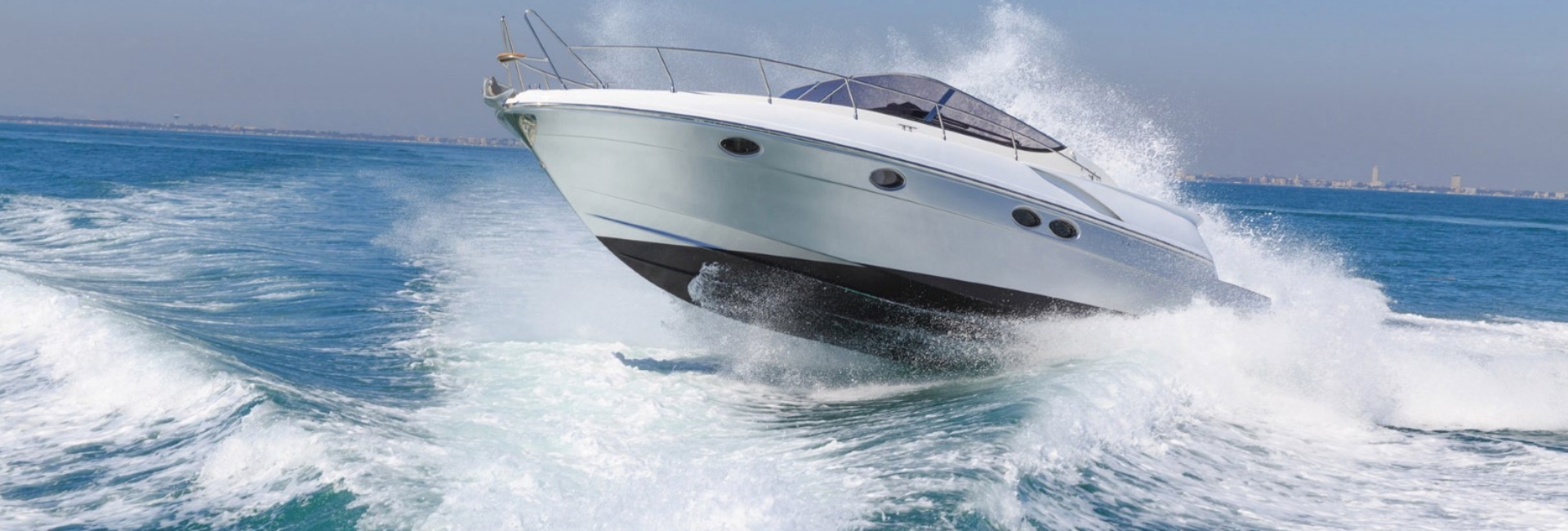
Useful Numbers
The VHF radio channels are as follows. The main coastal radio station is Olympia Radio with the Hellenic coast guard. If you do not have a VHF radio set, you can call the guards with your mobile phone (dial 108 or 112). You can reach the coastal station Olympia Radio by dialing +30 210 600 1799 with your phone.
Olympia radio is constantly listening to channels 2.16 and 70, and transfers emergency calls to the coast guard. If you want to listen to the forecasts, you can do it with the channels: 1, 2, 4, 23, 25, 27, 60, 69, 2, 83, 85.
The broadcasting hours are 9, 13, 19 and 23 o’clock.
If you miss the forecasts, you can call the coast stations and get free weather information: (01) 969 93 06 or (01) 8 94 06 16.
The number of the police is 100, tourist police 171, ambulance 166, SOS life line 175, the Red Cross 150!
Domestic directory inquiries can be made by calling 11888, while international directory inquiries can be made by calling 139. You can also find the necessary channels and numbers in boat folders. Check them orderly, and if you do not see them, ask for them at the charter base.
Please never use your phone as a substitute for VHF!
Without a doubt, the best way to explore and experience Greek coast would be to sail to all of its islands. Each and every of 3,000 Greek islands is more beautiful than the other, and they all have their special charm.
The Dodecanese are eastwards of the Cyclades and at the border of Turkey. They are well- known for their tiny bays and ancient cities with fortifications from the Venetian occupation.
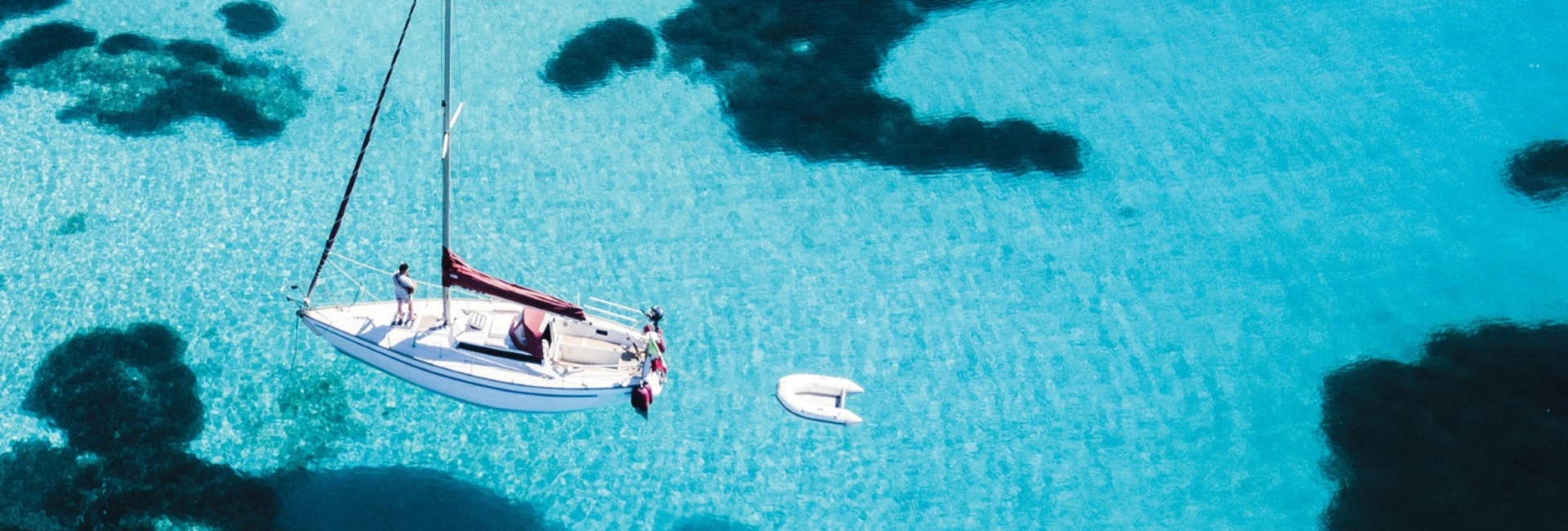
Sailing in the Dodecanese
Dodecanese Islands compose one of the most beautiful sailing destinations in Greece, located in southeastern Aegean Sea. The amazing landscape, along with the existence of small islands and islets off the beaten track, compose a unique experience for sailors who decide to visit this wonderful area for sailing holidays.
Wind force is rather mild thanks to its protection on east and northeast from the Minor Asia Coast. Usually, winds do not exceed 6 Beaufort’s (i.e., 25 knots) but keep minimum 2-3 Beaufort’s, allowing for easy sailing conditions throughout the summer period. Particularly in July and August, when meltemi the prevailing north wind of that period) blow its strongest in Central Aegean Sea, Dodecanese islands remain well protected at a maximum of 6 Beaufort’s, mainly in August. At the end of the month, meltemi usually faints out gradually but wind keeps strong enough for sailing the yacht.
Wind direction is Western, that’s the only direction not protected from the Coast. However, waves never get too high, reaching up to 1,5 meters high, with strong winds. Geographical factors protect this group of islands from the north and south, where waves would be expected to reach their maximum size.
Throughout summer months, the sky is bright with hardly any signs of major clouds. Due to its geographical position, the region enjoys the longest periods of sun shine and summer heat, across the Greek waters. As a result, Dodecanese islands, with islands close to each other and with numerous bays offering safe shelter in the most beautiful landscape, compose an ideal sailing destination for easy sailing and relaxed holidays. While having many of the comforts that you will want from time to time, marinas such as Kos, Rhodes, Leros and Patmos can cost around €40 per night for a typical 40ft (12m) yacht. If you are on a large monohull or catamaran, expect to pay quite a bit more. They are also very busy so it is worth calling the marina the day before to see about reserving a berth there.
Ports will not always have showers or shore power electricity but you will pay a lot less for staying there. With the cost difference it might be a case of having one or two nights in marinas to victual and get clean, and then head for a quieter spot on most of the other nights.
Do consider a night or two in an anchorage! These will cost you nothing in many cases, and the peace and quiet, perhaps as you have a barbecue on deck will be just what you need after life in the rat race at home.
An important fact to note is that you are often sailing near the border with Turkey’s national waters, so do keep your eye on your GPS. Generally, flying the Turkish national flag instead of the Greek one is enough to avoid to speak to Turkish coastguards should they hail you.
Sail the impossibly clear waters of the Dodecanese in Greece, and reach idyllic harbors and pebbled beaches on the diverse islands. Every island has their own unique geography, landscape, culture and feel. And maybe we’ll see dolphins while sailing between them, if we’re lucky. To see all the Dodecanese, you’d need at least 2 weeks. But one week is enough for a taster, to the north and the south, the well-known jewels as well as the more remote secrets.
Taking theory and practice sailing lessons while island hopping in the Aegean? While sailing you take lessons and learn everything there is to know about sailing. At the end of your journey, you are rewarded with the sailing Certificate. What more to ask for your holidays? Several sailing schools in the islands of Dodecanese offer you that possibility
